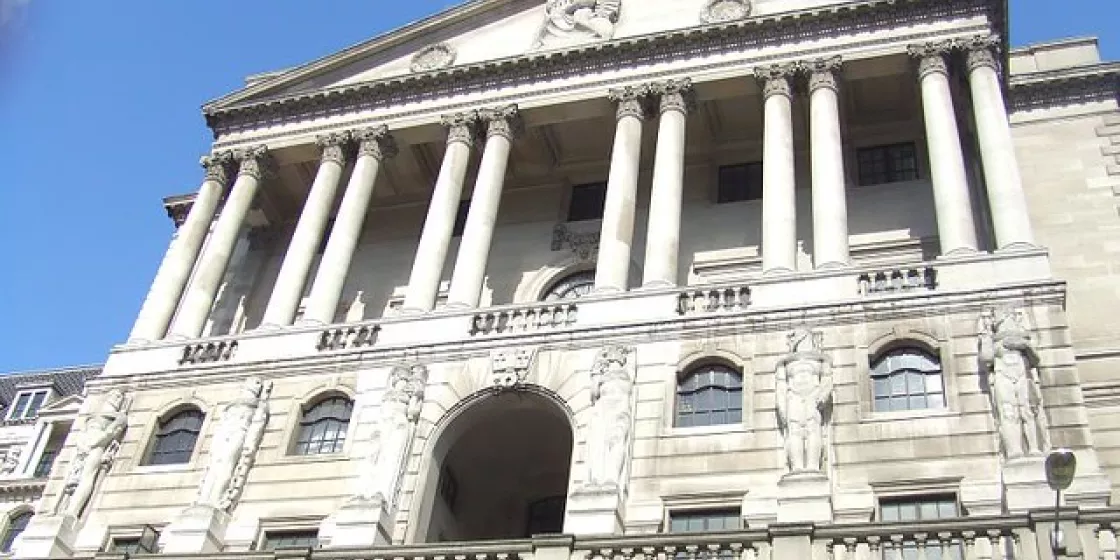The year 2019 will be key for future climate policy in Germany and Europe. Finance plays a key role in improving climate protection and sustainable growth.
To this end, Germany should learn from pioneering countries for “Green Finance”. In the seven articles in our series, international authors will therefore explain their country's approach towards a green financial system, addressing opportunities, hurdles and unanswered questions.
In Great Britain, a "greener" financial system has high priority even in turbulent times of Brexit. But to be credible, a new strategy must avoid greenwashing and make civil society more heard.
The UK Government is set to launch its first Green Finance Strategy this spring, representing huge opportunities for greening the UK’s financial system. This article charts the winding course of the UK’s progress on this from the Green Finance Initiative to the upcoming Green Finance Strategy.
At the start of this process was the industry-led Green Finance Initiative (GFI), established by the City of London Corporation in 2016. Led by Sir Roger Gifford, its membership draws from the breadth of the City of London and it has grown significantly since inception, meeting regularly to discuss green finance.
This initiative led to the UK Energy Minister Claire Perry announcing the Green Finance Taskforce (GFT) in September 2017, also led by Sir Roger. The GFT brought together senior leaders from finance to make recommendations to the UK Government to maximise clean growth opportunities for UK businesses and green the financial system. E3G acted as co-secretariat along with the Principles for Responsible Investment (PRI) and City of London.
The taskforce lasted six months publishing recommendations to help the UK consolidate its position as a world-leading green finance hub. Six months was a relatively short period of time for such a process though it benefited from a highly motivated and fast-moving membership.
The objectives also include international standards
Civil society was poorly represented, yet despite this the report is well-regarded across the green finance sector and some recommendations have been implemented. A full response is expected in the Government’s Green Finance Strategy, due in Spring 2019, while the new Green Finance Institute will launch in July.
The new Green Finance Institute will be managed by the City of London, serving as a key implementing agency for delivery of taskforce recommendations. The Institute will also take forward work on international standards, working directly with China, India and Brazil. The Institute will also implement recommendations from the Taskforce on Climate-related Financial Disclosures (TCFD) established by Bank of England Governor and Financial Stability Board Chairman Mark Carney.
Civil society is poorly represented
E3G, as the sole civil society voice on the advisory board, recognises the importance of our role in ensuring access for civil society in the conversation.
The upcoming Green Finance Strategy will set out the steps Government is taking to attract investment in the clean economy. There has so far been a low-profile consultation process about the strategy with wider stakeholders. The Government’s proposals will need to be aligned with the EU’s Sustainable Finance Action Plan (even despite Brexit), and be highly ambitious if the UK is to compete with international developments on Green Finance.
While these processes represent huge opportunities for greening the UK finance system, impact is not inevitable, and progress has lacked urgency or scale. To succeed, there must be more clarity on the Government’s long-term vision.
Changes post-Brexit may have repercussions for Green Finance. Unlike in some countries, the Conservative Government has been at the forefront of climate policy, e.g. supporting Clean Growth Strategy (2017). However, there are still question marks about UK’s subsidies for fossil fuels. Interestingly, with Brexit looming, green finance remains a priority for the UK. Green finance is considered a key Brexit ‘hedge’ – delivering both domestic investment in green infrastructure and as a trade offer.
UK Energy Minister, Claire Perry, has prioritized green finance while UK Prime Minister Theresa May has made Green Finance one of the few climate-related issues she is prepared to promote personally - understanding its potential to drive clean growth and support the UK economy post-Brexit.
New strategy must avoid greenwashing
All the while, Brexit is now entering its most risky phase. The squeeze on civil servants means the team delivering the strategy is small. Civil society is still underrepresented in processes to define green standards, and there are market risks if standards are watered down. Future alignment between the EU and UK is barely on the radar, despite its urgency.
These are all solvable challenges. There is a need to keep pressure on government by demonstrating demand across the finance sector. To be credible, the new strategy must guard against greenwash, ensuring civil society voices are heard. Supportive voices must feed into the 2019 Green Finance Strategy – and must be seen to do so.

| George Triggs is a Policy Advisor working on E3G’s UK Green Finance project. He works on the UK Green Finance Taskforce where he supports the finance industry’s development of solutions to support the UK Government’s Clean Growth Strategy. www.e3g.org/people/george-triggs |

| Dr Helena Wright is a Senior Policy Advisor at E3G where she leads E3G’s work on international financial institutions. www.e3g.org/people/helena-wright |

With the financial support of Stiftung Mercator. The author and Germanwatch are responsible for the content.
The blog post was first published at www.klimareporter.de.




